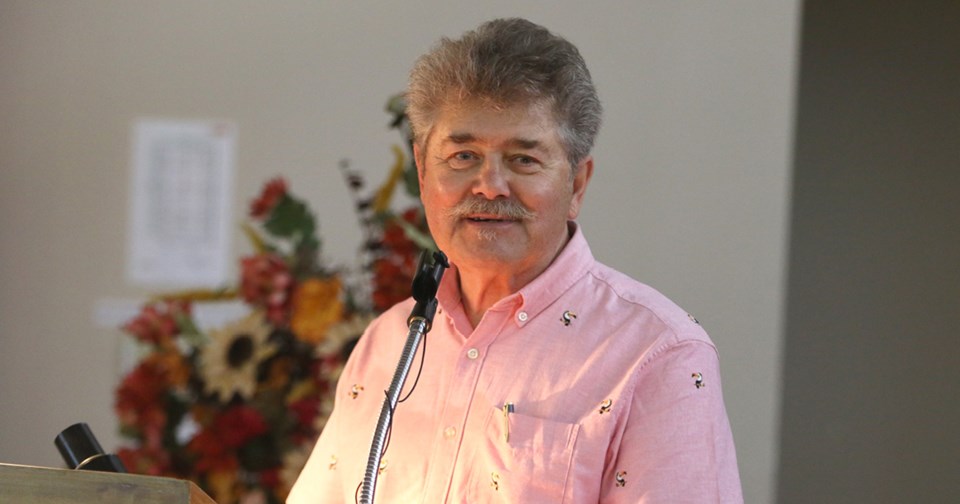MUENSTER — An authors’ retreat that got its start at the Sage Hill radar base celebrated its 30th anniversary.
The Sage Hill Writing Experience began in 1989 at the base, officially known as CFS Dana. They then moved the retreat to Lumsden and various other locations until it came to St. Peter’s College last year.
The 10-day retreat, held July 2 to 12, features courses in fiction, non-fiction and poetry. There is also a course for emerging writers.
Steven Ross Smith, who’s written around a dozen books over the course of four decades, was the founding executive director. He was in that position for 18 years.
“It’s pretty amazing, actually, to think something that started as an idea and then was developed into a program would survive this long,” he said.
Smith was the Kroetsch keynote speaker at an event open to the public on July 6. During his speech, he talked about the history and development of Sage Hill Writing, his own path as a writer, the challenges of writing, and about Robert Kroetsch, who was a critic, novelist, poet and writer.
“He was a mentor to many writers and he taught at Sage Hill on more than one occasion, at least four occasions.”
About 1,000 writers have gone through the program in 30 years, said Tara Dawn Solheim, the current executive director. About 700 have published.
There were 32 writers at the retreat, coming as far as BC and New Brunswick.
Sandra Ridley, who lives in Ottawa but was originally from the Foam Lake area, taught the poetry class. She’s taught for two years and was a participant in the past.
“I am here with six amazing poets in this really incredibly charged environment, being nourished by them and trying to give them something back,” she said. “They're working on their manuscripts and I'm here is their mentor, editor, companion, champion.”
She said the course has been intense, with full days of writing and having to shift between different pieces, all of which have their own tones and emotions..
“It's this shift being able to move between people projects, which is a challenge, but also a real source of joy in a way and keeps me on my toes.”
Tanis MacDonald taught the non-fiction course. She participated in the course herself in 1995 and has taught for two years.
“What's very important to remember is that Saskatchewan has a really awesome support for writers from the Saskatchewan Writers Guild and through the Sage Hill Writing experience and not every province has that,” she said. “People here should take advantage while you can because such things are often under peril under particular kinds of governments who don't think the arts are important.”
Ridley also encouraged people to take part in the future.
“It’s such a fantastic experience for any writer at any stage, and very nurturing environment, so I think they should all come on.”
Ěý
Advice for aspiring authors
The teachers and special guests at the Sage Hill Writing Experience had some advice to give aspiring authors:
“Get your bum on the chair and get writing. That's the only way to do anything. You can dream about ideas and think about ideas, but until you sit down and start putting words on paper and sticking with it, Ideas are just ideas. Writing is writing. It's a verb, it means you have to do it.”
—Steven Ross Smith
Ěý
“Writers have to have stamina, they have to be able to go long periods without getting feedback on their work… You have to believe in your work and more than anything else, you just have to write it. Don't worry about figuring it out. Figure it out later. Just write it now.”
—Tanis MacDonald
Ěý
“I’d ask them to really consider what they want their readers to feel, because readers want to feel something, but once they decided what that emotion is, then to construct their poem or their writing in a way that builds that. It’s not so much about the message, but how the message is delivered.”
—Sandra Ridley




